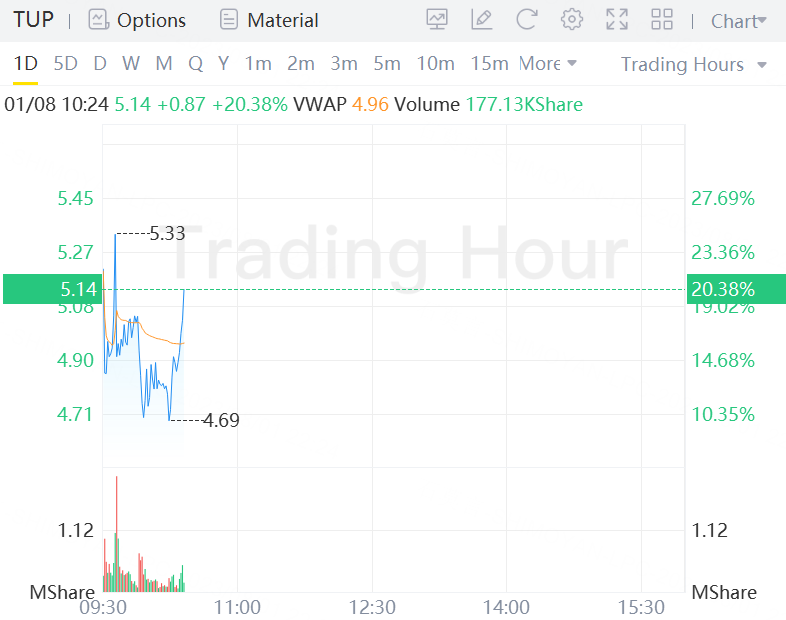Tupperware stock continues to fly more than 20% higher in morning trading on Tuesday.
The stock $(TUP)$ soared 39% on Monday, for the highest close since Feb. 3.
Monday's rally adds to the stock's 242.2% rally last week, which was the biggest one-week gain since it went public in May 1996.
In July, it has blasted 434% higher, a monthly record. The previous record was the 224.8% gain seen in July 2020.
The stock's historic rally kicked off after closing at a record low of 62 cents on July 18. The daily gains have been highlighted by the record 75.6% jump on July 24, despite no news being reported.
Since the record low close, the stock has soared more than 7-fold (up 617.7%).
Amid its surging share price, the company's market capitalization has reached $196.96 million. On July 7, when Tupperware said that it had entered a waiver agreement with some of its creditors, the company's market cap hovered around $33 million.
The latest exchange data showed that short interest in Tupperware's stock, or bearish bets made, had climbed to a three-year high of 9.69 million shares, which 27% of the public float, or shares readily available for the public to trade.
In comparison with a stock that some say has been subject to a rally induced by bearish investors covering their short bets, often referred to as a "short squeeze," Sirius XM Holdings Inc.'s short interest represented 30.8% of its public float.
In its preliminary full-year results reported in March, Tupperware sported an 18% sales decline compared with the prior year. Back then, Tupperware Chief Financial Officer Mariela Matute said in a statement that 2023 was expected to be a transition year for the company as it worked to stabilize its business and get on better financial footing.
The following month, Tupperware issued a going-concern warning, essentially cautioning that it could go bust. Tupperware also announced the hiring of financial advisers to help it navigate its near-term challenges.
The company is projected to release its next quarterly report later this week, according to FactSet.

Comments